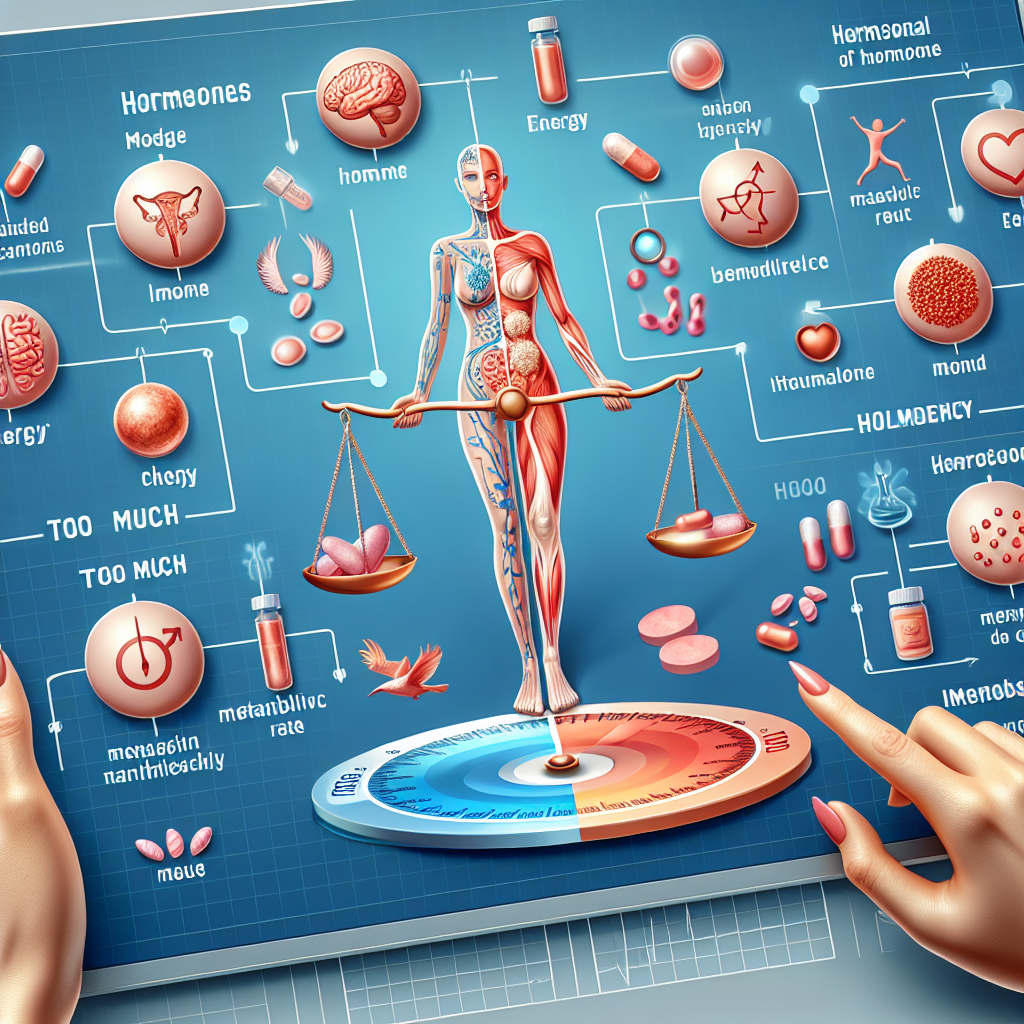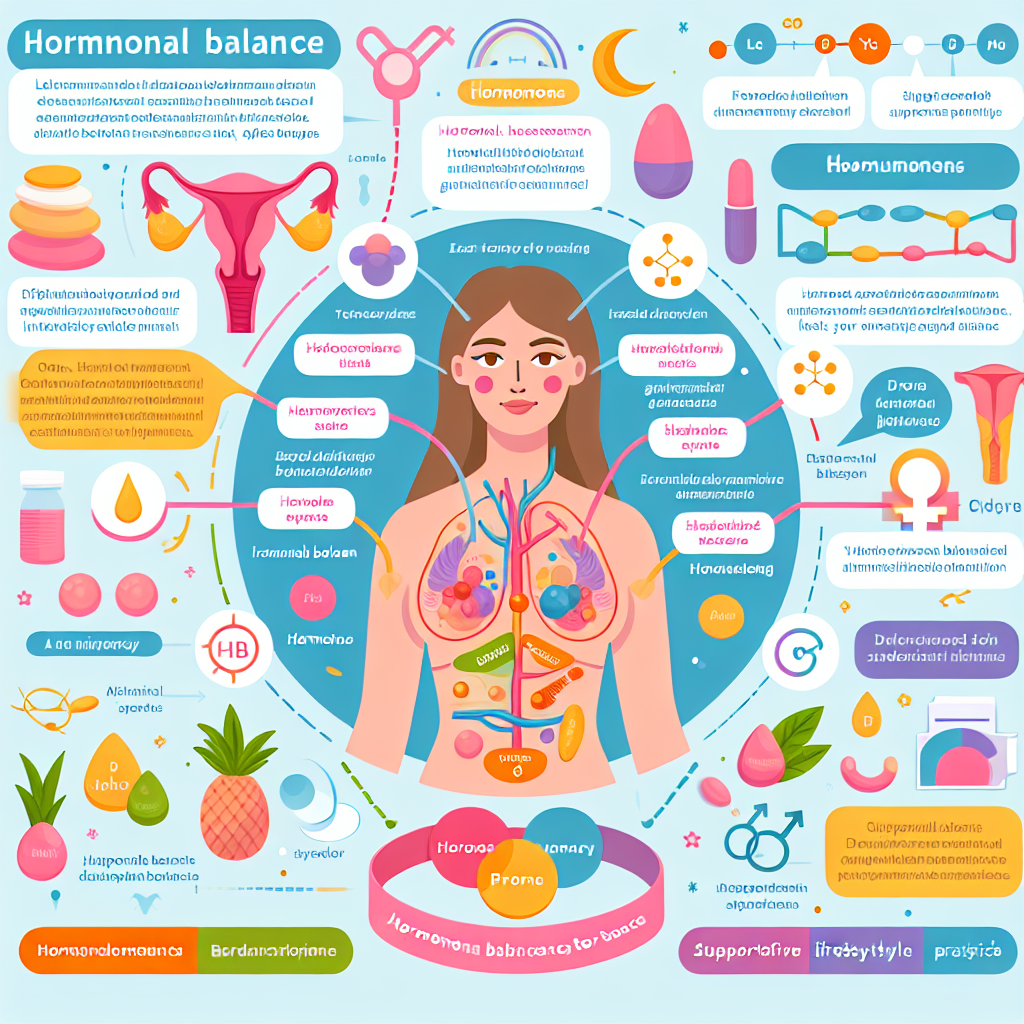Why Hormonal Balance For Women Matters More Than Ever

Discover why hormonal balance for women matters more than ever. Understand the importance of maintaining hormonal balance for overall health and wellbeing. Don’t wait, learn more today. Click here to get started.
Understanding the Importance of Hormonal Balance for Women in Today’s World
In today’s fast-paced world, women are juggling multiple roles and responsibilities, often at the expense of their health. One aspect of health that is often overlooked, yet plays a crucial role in overall well-being, is hormonal balance. Hormonal balance for women matters more than ever, and understanding its importance is the first step towards achieving optimal health.
Hormones are chemical messengers that regulate numerous bodily functions, including metabolism, mood, sleep, and reproduction. When these hormones are in balance, the body functions optimally. However, when hormonal imbalances occur, it can lead to a myriad of health issues, ranging from minor discomforts to serious conditions.
In women, hormonal balance is particularly important due to the unique physiological processes they undergo, such as menstruation, pregnancy, and menopause. Each of these stages requires a delicate balance of hormones to function properly. For instance, during menstruation, imbalances in estrogen and progesterone can lead to symptoms such as mood swings, bloating, and fatigue. Similarly, during menopause, declining levels of these hormones can result in hot flashes, night sweats, and other discomforts.
Moreover, hormonal imbalances can also lead to more serious health conditions. For example, an excess of estrogen, a condition known as estrogen dominance, has been linked to conditions such as breast cancer, endometriosis, and fibroids. On the other hand, low levels of progesterone can lead to infertility and miscarriage. Therefore, maintaining hormonal balance is not just about alleviating discomforts, but also about preventing serious health risks.
In today’s world, women are exposed to numerous factors that can disrupt hormonal balance. These include stress, poor diet, lack of exercise, and exposure to environmental toxins. Chronic stress, for instance, can lead to elevated levels of cortisol, the body’s primary stress hormone. This can disrupt the balance of other hormones, leading to symptoms such as weight gain, fatigue, and depression. Similarly, a diet high in processed foods can lead to insulin resistance, a condition that disrupts the balance of insulin, a hormone that regulates blood sugar levels.
Understanding the importance of hormonal balance for women is the first step towards taking control of one’s health. It involves recognizing the signs of hormonal imbalances, such as irregular periods, mood swings, unexplained weight gain or loss, and chronic fatigue. It also involves adopting lifestyle changes that support hormonal balance, such as eating a balanced diet, exercising regularly, managing stress, and reducing exposure to environmental toxins.
In conclusion, hormonal balance for women matters more than ever in today’s world. It is not just about alleviating discomforts associated with different stages of a woman’s life, but also about preventing serious health conditions. By understanding the importance of hormonal balance and taking steps to maintain it, women can enhance their overall well-being and lead healthier, more fulfilling lives.
Why Maintaining Hormonal Balance is Crucial for Women’s Health

Hormonal balance is a critical aspect of women’s health that often goes unnoticed until it’s too late. It’s a delicate dance that plays a significant role in virtually every function of the body, from regulating mood and energy levels to managing weight and reproductive health. In today’s fast-paced world, where stress levels are high and sleep often takes a backseat, maintaining hormonal balance for women matters more than ever.
Hormones are chemical messengers that travel through the bloodstream, controlling and coordinating complex processes like growth, metabolism, and fertility. They can influence the function of the immune system, and even alter behavior. Thus, when hormones are out of balance, it can have a wide range of effects on a woman’s health.
One of the most common hormonal imbalances in women is related to estrogen and progesterone, the primary female sex hormones. These hormones fluctuate naturally throughout a woman’s menstrual cycle. However, factors such as stress, poor diet, lack of exercise, and environmental toxins can disrupt this balance, leading to symptoms such as mood swings, fatigue, weight gain, and menstrual irregularities. In the long term, this imbalance can contribute to conditions such as osteoporosis, heart disease, and certain types of cancer.
Another critical hormone for women is thyroid hormone. The thyroid gland regulates metabolism, and when it’s not functioning correctly, it can lead to symptoms such as weight gain or loss, fatigue, depression, and hair loss. Women are more likely than men to have thyroid problems, and these can often go undiagnosed due to the nonspecific nature of the symptoms.
Hormonal balance also plays a crucial role in mental health. Hormones like estrogen and progesterone, as well as others like cortisol and adrenaline, can significantly impact mood and cognitive function. Imbalances in these hormones can contribute to conditions such as depression, anxiety, and mood disorders.
Moreover, hormonal balance is essential for fertility and reproductive health. Conditions such as polycystic ovary syndrome (PCOS) and endometriosis, which are common causes of infertility, are linked to hormonal imbalances. Maintaining hormonal balance can help manage these conditions and improve fertility.
So, how can women maintain hormonal balance? A healthy lifestyle is key. This includes a balanced diet rich in fruits, vegetables, lean proteins, and healthy fats, regular exercise, adequate sleep, and stress management techniques such as meditation or yoga. In some cases, hormonal imbalances may require medical intervention, such as hormone replacement therapy or medication.
In conclusion, hormonal balance is a cornerstone of women’s health. It influences a wide range of physiological processes and can significantly impact a woman’s quality of life. In today’s world, where women often juggle multiple roles and face high levels of stress, maintaining hormonal balance is more important than ever. By prioritizing their hormonal health, women can not only improve their physical and mental well-being but also prevent long-term health issues. Therefore, it’s crucial for women to understand the importance of hormonal balance and take proactive steps to maintain it.
The Increasing Significance of Hormonal Balance for Women in Modern Times
In the realm of women’s health, the importance of hormonal balance cannot be overstated. It is a critical aspect that influences a woman’s overall well-being. In modern times, the significance of hormonal balance for women has become more pronounced than ever before. This is due to a myriad of factors, including lifestyle changes, environmental factors, and the increasing prevalence of hormonal disorders.
Hormones are chemical messengers that regulate numerous bodily functions, including metabolism, mood, growth, reproduction, and stress response. When these hormones are in balance, they ensure the smooth functioning of these processes. However, when hormonal imbalances occur, they can lead to a host of health issues, ranging from minor discomforts to serious conditions like polycystic ovary syndrome (PCOS), endometriosis, and even certain types of cancer.
In today’s fast-paced world, women are juggling multiple roles and responsibilities, leading to increased stress levels. Chronic stress can wreak havoc on the hormonal system, leading to imbalances. Moreover, the modern diet, often high in processed foods and low in essential nutrients, can also contribute to hormonal disruptions. Additionally, exposure to environmental toxins, found in everything from household cleaning products to cosmetics, can interfere with hormone production and function.
The rise in hormonal disorders among women is a testament to the increasing significance of hormonal balance. Conditions like PCOS and endometriosis, which are primarily driven by hormonal imbalances, are becoming more common. These conditions not only cause physical discomfort but also impact a woman’s fertility, mental health, and quality of life.
Furthermore, hormonal balance plays a crucial role in a woman’s reproductive health. From menstruation to pregnancy to menopause, every stage of a woman’s reproductive life is governed by hormones. Imbalances can lead to irregular periods, fertility issues, pregnancy complications, and difficult menopausal transitions. As women are choosing to have children later in life, maintaining hormonal balance becomes even more critical to ensure healthy pregnancies and babies.
Hormonal balance is also closely linked to mental health. Hormones like estrogen and progesterone influence mood and brain function. Imbalances can lead to mood swings, anxiety, depression, and cognitive issues. In a time when mental health issues are on the rise, addressing hormonal balance can be a key component of mental health care for women.
In conclusion, the significance of hormonal balance for women in modern times is more crucial than ever. It is not just about managing symptoms or preventing disorders; it is about ensuring optimal health and well-being. Women need to be proactive about their hormonal health, seeking regular check-ups, following a balanced diet, managing stress, and reducing exposure to environmental toxins. By doing so, they can not only prevent hormonal imbalances but also enhance their overall health and quality of life. The increasing understanding and awareness of the importance of hormonal balance is a positive step towards better health care for women.